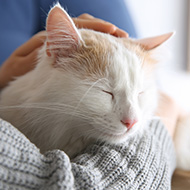New insights revealed on flea-borne bacteria

Many species of the bacterial genera found cause disease in both people and cats.
A study from North Carolina State University (NC State) and the University of Wisconsin-Madison (UW Madison) has identified the disease-causing bacteria carried by cat fleas.
Published in Parasites and Vectors, the research explores the types of flea-borne pathogens are present in individual fleas, and the implications these have for cats and humans.
Collecting and examining the fleas on free-roaming cats brought in for Trap-Neuter-Release programmes, researchers studied individual flea microbiomes using Next Generation Sequencing (NGS).
Analysing fleas from seven different locations within the US and UK, the team found that the presence of two or more bacterial genera in a single flea was common.
In the fleas, the researchers found three different disease-causing pathogens that were common, Bartonella, Rickettsia and Wolbachia.
The findings confirmed the widespread coinfection of fleas with multiple bacterial genera and strains, which authors have suggested have important implications for the transmission and control of flea-borne pathogens.
In a report on UW Madison's Veterinary Medicine website, assistant professor of small animal internal medicine Erin Lashnits, explained: “The idea was to test individual fleas and see not just what bacterial pathogens that cause disease were in fleas, but also what other bacteria were throughout the flea.
“We know that ticks’ and mosquitoes’ microbiomes (the whole community of bacteria that live in them) have a lot of influence on whether or not they can transmit different diseases.
“Nobody has looked at that for fleas. So, we wanted to do that with individual fleas. Because as you might imagine, if you pour a bunch of fleas together in a vial and look at their bacteria, you don’t know what any one flea contains.”
Discussing the implications of the findings, Professor Lashnits continued: “My big takeaway is that fleas can carry pathogens and are not just a nuisance or something to overlook. Fortunately, there are good and easy ways to prevent fleas.
“Our next step is looking at the cats. For this study, we only looked at the fleas, but we’re now working with cats too. We will compare the pathogens we’re finding in the fleas to what pathogens we’re finding in the free-roaming cats.
“The big picture step is to add people to the mix. Because ultimately, of course, we want cats to be healthy. We don’t want them to get these diseases. But in a lot of ways, it matters for people.
“Because if people are exposed to diseases from the fleas on free-roaming cats, that is a big impact on human health.”



 The latest
The latest